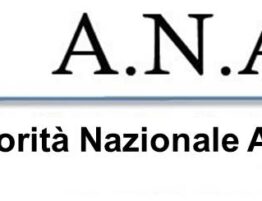
Italians are litigious people. Those who have found themselves having to experience the extended time frames of the Italian justice system are well aware of it. These time frames are too often stretched by opposing parties who are often unwilling to settle the dispute out of court, in disregard of the obvious possibility of reaching a sufficiently satisfactory compromise for both sides.
Confirmation of this all Italian dilemma are the numerous deflationary interventions adopted in recent years by the Italian law makers. In fact, in order to alleviate the bulk of cases pending before the courts, it now seems essential to affect the willingness of the parties to stubbornly pursue and continue disputes, rather than the legal procedure modes. Law makers have recently tried to achieve this goal through the introduction of a number of cases -which are peremptorily laid down by the law- in which citizens are compelled to preventively undergo the mediation or the assisted negotiation procedure, under penalty of inadmissibility of the legal proceedings (for a further analysis of the characteristics of the procedure, also in comparison with mediation, see our March 2015 newsletter).
However, apart from the cases where the conciliatory approach to the dispute is imposed by law, the smooth functioning of the above mentioned deflationary procedures is evidently connected to a spontaneous use of such tools, which may allow the parties to appreciate their positive aspects.
Therefore, in order to promote such voluntary use, the Italian legislators –by means of art. 21 bis of Decree Law June 27, 2015, n. 83 on “Urgent measures in the fields of bankruptcy, civil and civil procedure, and of organization and functioning of the judicial administration”– have established a financial incentive on an experimental basis which is aimed at those who in 2015 have paid an attorney who has successfully assisted them in the pre-litigation negotiation phase.
In particular, such incentive consists of a tax credit proportional to the fees paid by the citizen to his/her lawyer, up to an amount of € 250. By 30 April 2016, the Italian Ministry of Justice will inform the tax payer of the actual amount of the awarded credit and, simultaneously, will provide the list of beneficiaries to the Revenue Agency.
The tax credit will be written down by the taxpayer in the 2015 tax return and will be useable starting from the date of receipt of the ministerial communication. The effect of this benefit, which starts running from the above mentioned ministerial communication, will be used in offset in accordance with Article 17 of Legislative Decree of July 9, 1997, n. 241 or, in case of natural persons who do not have business or self-employment income, as income tax reduction.
Therefore, at this point, we look forward to the publication of the text of the Ministerial Decree which was signed by the Minister of Justice on 16 October 2015, since it will contain the implementing provisions of Article 21 bis, specifying the practical aspects for the submission of the application and its accompanying documents. It currently seems that the procedure has been designed to be used easily and quickly, in order to further encourage taxpayers to use it.
In our view, regardless of the outcome of the initiative, there seem to be all the conditions for its success and repetition. Indeed, the contribution is for once cunningly made in favour of a settlement procedure that provides the assistance of one’s lawyer and that, therefore, is in itself likely to succeed.
(Bologna Office – Valentina Saviotti – 0039(0)512750020).









